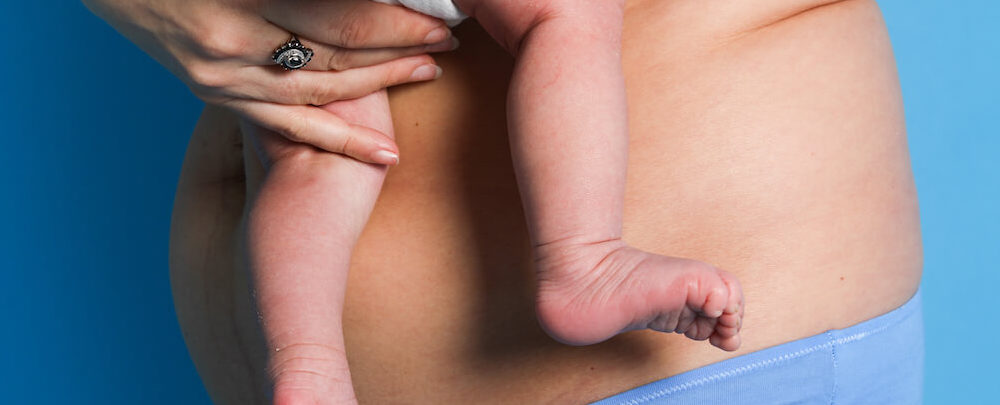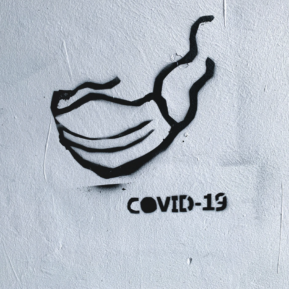For some of us, birth is not only joyful - in that it is the day we get to meet our baby - but it can also be a difficult, distressing and traumatic event.
Birth Trauma can feel like the wrong word sometimes or something we can’t relate to ourselves. We can also call it 'a birth you did not expect', 'a birth that was not as you hoped or planned for during pregnancy' or 'a birth experience where you felt unsafe, frightened, alone or at risk'.
It can feel like our memories of the birth are constantly stuck in our mind or that we cannot think about or talk about our birth at all.
A difficult or traumatic birth does not always mean there has been a medical emergency such as an emergency caesarean or bleed. This can be the birth trauma, but just as often, it’s about how cared for women and birthing people feel in labour, how safe women and birthing people feel, and if they feel heard.
With trauma, women and birthing people often talk about feeling they were not treated with any dignity or kindness and that they were not communicated with well or that procedures were done without their consent. Trauma is always unique to each person’s experience - not what happened medically or on paper.
It's always a unique story
Birth Trauma is sadly all too common and often not well recognised or identified, meaning many women and birthing people hold these feelings alone. At least a third of women find some part of their birth experiences traumatic and this can be due to one event or multiple events and these may be in pregnancy, during birth and after birth.
Women and birthing people who have a traumatic birth can have symptoms for weeks, months or these feelings can last for years. Around 1 in 25 women develop Post Traumatic Stress Disorder/PTSD due to childbirth and a difficult birth can also lead to illnesses such as depression or anxiety.
It’s really important for me to say that fathers and birth partners can also be traumatised by birth too.
Feelings associated with Birth Trauma
After birth trauma, women and birthing people can experience a whole range of symptoms. Trauma essentially makes us feel unsafe and we are left feeling unsafe in the world and expecting something else to happen. We feel on edge and on high alert. There may be a sense of a mood that is constantly changing, with feelings of sadness, anger, tearfulness, fear, shame and guilt.
This often sits alongside constantly overthinking or replaying the birth in dreams, in our thoughts or as visual images, like a movie clip or a photo. These memories are often of a particular moment from the birth, we call this a trauma hotspot. This might be a comment someone made, a doctors’ face or the baby not crying after delivery for example.
We should be asking all women and birthing people how their birth experience felt as part of their routine care alongside the six-week check but I know this often doesn’t happen. We need to ask more than once. We need to give new parents time to talk and tell their story and for them to know we are really listening and hearing them.
Often women and birthing people are never asked about their birth and so all these traumatic feelings and emotions remain with them, and they are left to hold them alone whilst also trying to be a new parent too.
What might help after a difficult birth experience?
Know you are not alone
Look at resources online where you can read other people's stories of healing and find support. You can be anonymous online remember, and sometimes this allows us to begin to share our stories more easily without fear of being judged or shamed. There are lots of blogs on the resources below and at The Positive Birth Company you’ll see stories of all kinds from women and families which can hopefully make you feel less alone.
If you cannot speak your story yet, perhaps try to write it down or use a journal to document some of your feelings. Make Birth Better, The Birth Trauma Association and AIMS are all organisations that might be able to help.
Know that there are many ways to heal
Lots of things can help us feel safe and begin to process our births after trauma. It’s about finding the right mix for you, but some of these options include:
- Regular gentle exercise
- Sleep
- Building social support networks
- Medication
- Meditation
- Breathing techniques
- Psychological therapy
- Physiotherapy
- Being in nature
- Speak to your GP or Health Visitor
- Self-refer to IAPT
- Call a helpline such as PANDAS or AIMS for advice
- Look at all the free downloadable resources on the Make Birth Better website.
Healing takes time, there is no right or wrong way to heal. There is no time frame for healing.
Know that you will feel better
With time and the right treatment, you will move forward with your trauma. It’s often a shift from your trauma feeling like it rules and ruins your life, to it being still part of you but your trauma has become less intense and no longer causes you such distress.
Many women and birthing people report growth after a difficult birth. It can mean they feel stronger and more resilient and that they feel a new sense of purpose. Many women and birthing people use their own experience to give feedback to change services locally, work as campaigners or support other people who are affected. Women and birthing people are amazing!
Know that you did nothing wrong
Ever. Birth Trauma is never ever your fault. You are never to blame. Full stop.
Know that you can love your baby entirely and mourn your birth experience
You can have a traumatic birth and love your baby at the same time. You can mourn or feel very angry and cheated by your birth experience whilst loving being a new mum. Holding these two very different feelings at the same time can feel understandably tiring and overwhelming.
Know that your connection with your baby will strengthen more and more with time.
After trauma, many women and birthing people can find they are worrying about something happening to their baby, checking them a lot or find feeding hard. Birthdays can often be very triggering too. There are also specialist parent infant therapists who can help you and baby connect too.
Know that you matter
A healthy baby is not all that matters. It’s not mother or baby. It is mother AND baby. Your feelings matter. You deserve to be well. You deserve to feel cared for and supported.
We often put ourselves last as women, especially as new mums. Please, if you are struggling after a difficult birth today, try to tell someone how you feel and get the support you are always worthy of receiving.
Give yourself all the care and the love and the compassion you give daily to your baby.
Dr Rebecca Moore Consultant Perinatal Psychiatrist, for The Positive Birth Company
Sign up today for unlimited access:
- Book appointments
- Expert advice & tips
- Premium videos & audio
- Curated parenting newsletters
- Chat with your bloss community
- Discounts & competitions
- Special events





Leave a Rating / Review
You must be logged in to post a comment.